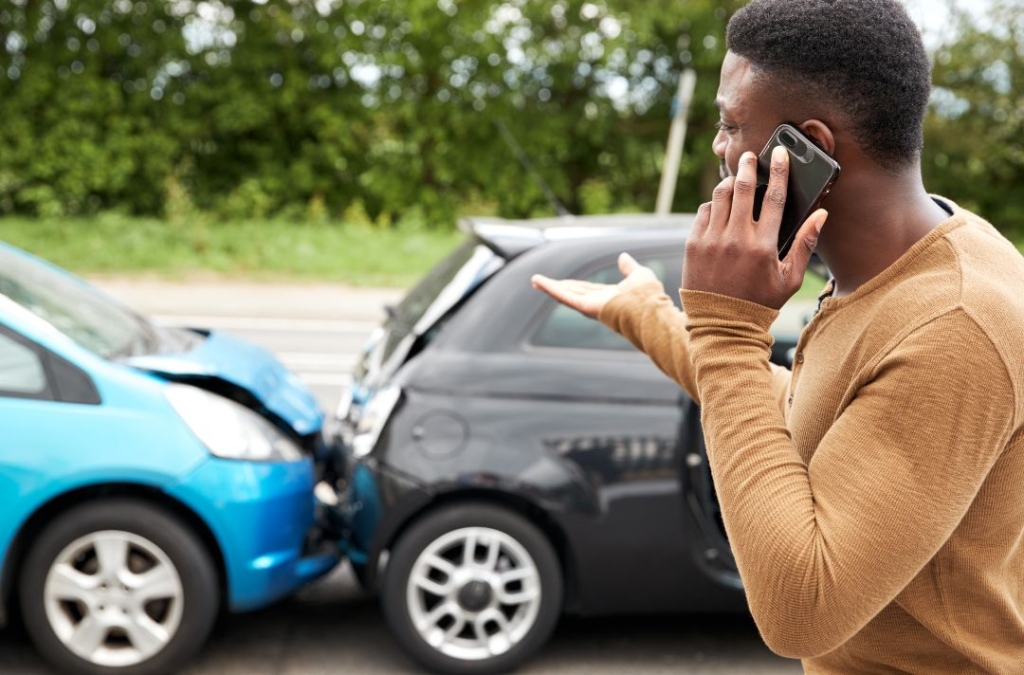After a car crash, getting insurance might not be your immediate concern. But not having it could affect any claims or legal actions for injuries. If you’re without auto insurance after an accident, it’s wise to get coverage quickly. This won’t change the fact that you were uninsured during the crash, but it can shield you from more financial trouble ahead.
Understanding what happens if you get insurance after an accident is crucial. Getting insurance post-accident may seem late, but it has advantages. It covers medical bills and legal representation if the other party claims against you. Plus, it could prevent license and registration suspensions, which are common penalties for uninsured drivers post-accident. Consulting an accident attorney can clarify this process.
Even though you can’t insure yourself after an accident, swiftly getting a policy can ease the impact and assure coverage for future costs. Your current actions could significantly affect your financial recovery later on.

Insurance Doesn't Cover Previous Injuries
If you get car insurance after an accident, it won’t pay for any injuries or damages from that earlier incident.
Coverage Starts from Policy Date
Auto insurance doesn’t cover past events. The insurance won’t pay for medical bills, repairs, or other accident costs if the accident occurred before your policy began. You’re on the hook for everything related to the accident.
Limited Coverage Possible
Certain insurers might offer restricted coverage for future medical costs from prior accidents based on state regulations and your policy terms. Immediate treatment after the crash won’t be covered. Adding a special provision to your policy or a rider may be necessary for ongoing care, likely with increased premiums due to added risk.
Expect Higher Premiums
Getting auto insurance post-accident often means paying more. Insurers see you as risky and increase rates accordingly. This hike might last 3-5 years, until the accident isn’t recent anymore. To keep premiums down, keep coverage and a clean record.
In short, post-accident insurance won’t cover the crash or initial costs. Limited coverage for future medical expenses might be an option, but it’ll cost more. The safest bet for comprehensive, affordable coverage is buying insurance before accidents occur.
Higher Premiums
Getting auto insurance after an accident usually means much higher premiums compared to having continuous coverage. Insurers see uninsured drivers as high-risk, so your rates could be 50–100% higher than standard premiums.
Your Driving Record and Claims Matter
When you apply for a new policy after an accident, the insurance company will check your driving record and claim history to set your rates. Any at-fault accidents, traffic tickets, or past claims will raise your premiums, as the insurer sees you as a higher risk. The more violations and claims you have, the higher your premiums will be.
Gaps in Coverage Can Cost You
If you’re in an accident without auto insurance, you could face serious financial problems. While looking for a new policy, you might have no coverage, leaving you exposed. Medical bills, car repairs, and other costs would need to be paid out-of-pocket during these gaps.
Your Coverage May Be Limited
New policies after an accident might offer less coverage and have higher deductibles. Limited coverage, like liability only, lowers premiums but doesn’t cover damage to your car. Higher deductibles also reduce premiums by making you pay more out-of-pocket before coverage starts.
In summary, getting auto insurance after an accident can result in higher premiums and limited coverage. Keeping continuous insurance is the best way to maintain affordable rates and full protection. Talking to insurance agents about your options can help you find the best policy for your needs.
Penalties for Driving Uninsured
You could face serious penalties if you’re in a car accident without auto insurance. Most states require drivers to have at least a minimum amount of liability coverage, and it’s illegal to drive without it.
Fines and License Suspension: Driving without insurance can lead to large fines, often hundreds of dollars. Some states will also suspend your driver’s license and vehicle registration. You’ll need to pay extra fees and show proof of insurance coverage to get them back.
Loss of Driving Privileges: In repeat cases, a judge might revoke your license for a long time or even permanently. This makes it very hard to legally drive, even if you get insurance later. Losing your driving privileges limits your mobility and independence.
Out-of-Pocket Costs: Without insurance, you would have to pay for all damages and injuries from the accident. This could add up to thousands of dollars for car repairs, medical bills, and other expenses. The other driver could also sue you to recover their losses.
Penalties for Driving Uninsured
You could face serious penalties if you’re in a car accident without auto insurance. Most states require drivers to have at least a minimum amount of liability coverage, and it’s illegal to drive without it.
Fines and License Suspension: Driving without insurance can lead to large fines, often hundreds of dollars. Some states will also suspend your driver’s license and vehicle registration. You’ll need to pay extra fees and show proof of insurance coverage to get them back.
Loss of Driving Privileges: In repeat cases, a judge might revoke your license for a long time or even permanently. This makes it very hard to legally drive, even if you get insurance later. Losing your driving privileges limits your mobility and independence.
Out-of-Pocket Costs: Without insurance, you would have to pay for all damages and injuries from the accident. This could add up to thousands of dollars for car repairs, medical bills, and other expenses. The other driver could also sue you to recover their losses.
Consult a Personal Injury Lawyer
It’s important to talk to a personal injury lawyer if you’re in a car accident, particularly if the other driver is to blame. They can guide you on the right actions to take and work to secure fair compensation for your injuries and losses.
Determine Fault: Attorneys investigate accidents to identify who was responsible, using evidence like police reports, photos, and witness statements. If the other driver was negligent, they use this to establish liability.
Handle Insurance Company: Attorneys negotiate with insurers, managing communications and aiming for a fair settlement. They’re prepared to take legal action if needed.
Focus on Recovery: Attorneys allow you to concentrate on healing while they deal with legal and insurance matters.
Contingency Fee Basis: Most personal injury attorneys work on a no-win, no-fee basis, only charging if they secure compensation for you. Their fee is typically a percentage of the total amount recovered.
Consulting a personal injury attorney is wise after a car accident, especially if you weren’t at fault. They can assess your claim, deal with insurers, and pursue fair compensation, leaving you to focus on getting better. They’ll also establish liability and build a strong case to support your claim.

